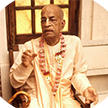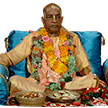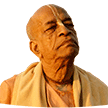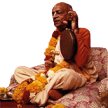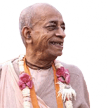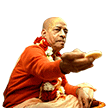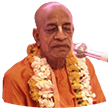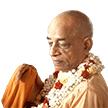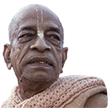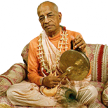Sahadeva - a glorious personality: Difference between revisions
(Created page with "Category:Glorious Personalities Category:Glorious Personalities from Bhagavad Gita Category:Glorious Personalities from Srimad Bhagavatam Category:Glorious Perso...") |
No edit summary |
||
| Line 26: | Line 26: | ||
---- | ---- | ||
<!---------------- BEGIN SHORT SUMMARY TEXT ----------------> | <!---------------- BEGIN SHORT SUMMARY TEXT ----------------> | ||
INTRODUCTION | INTRODUCTION TEXT TO BE WRITTEN | ||
<!----------------- END SHORT SUMMARY TEXT -----------------> | <!----------------- END SHORT SUMMARY TEXT -----------------> | ||
{{Personalitiesnav}} | {{Personalitiesnav}} | ||
<!---------------- BEGIN STANDARD HEADING ----------------> | <!---------------- BEGIN STANDARD HEADING ----------------> | ||
Srila Prabhupada's books, lectures, conversations and letters | Srila Prabhupada's books, lectures, conversations and letters reveal the qualities of this essential subject as seen in the Vaniquotes '''[[Vaniquotes:Category:Sahadeva|Sahadeva]]''' category. An introduction to Sahadeva from Srila Prabhupada's teachings is given below in the following 8 quotes. | ||
<!----------------- END STANDARD HEADING -----------------> | <!----------------- END STANDARD HEADING -----------------> | ||
== Quotes from Srila Prabhupada's teachings == | |||
<!---------------- BEGIN QUOTE BOXES ----------------> | <!---------------- BEGIN QUOTE BOXES ----------------> | ||
{{VaniQuotebox|Nakula and Sahadeva, were begotten by Pandu himself in the womb of Madri|Nakula and Sahadeva, were begotten by Pāṇḍu himself in the womb of Mādrī. Later on, Mahārāja Pāṇḍu died at an early age, for which Kuntī was so aggrieved that she fainted. Two co-wives, namely Kuntī and Mādrī, decided that Kuntī should live for the maintenance of the five minor children, the Pāṇḍavas, and Mādrī should accept the satī rituals by meeting voluntary death along with her husband. '''(Śrīmad-Bhāgavatam 1.13.3-4)'''}} | {{VaniQuotebox|Nakula and Sahadeva, were begotten by Pandu himself in the womb of Madri|Nakula and Sahadeva, were begotten by Pāṇḍu himself in the womb of Mādrī. Later on, Mahārāja Pāṇḍu died at an early age, for which Kuntī was so aggrieved that she fainted. Two co-wives, namely Kuntī and Mādrī, decided that Kuntī should live for the maintenance of the five minor children, the Pāṇḍavas, and Mādrī should accept the satī rituals by meeting voluntary death along with her husband. '''(Śrīmad-Bhāgavatam 1.13.3-4)'''}} | ||
{{VaniQuotebox|The sons of Pandu - King Yudhisthira, Bhima, Arjuna, Nakula and Sahadeva - were all caught up in fraternal love for Krsna|When the sons of Pāṇḍu, headed by Mahārāja Yudhiṣṭhira, saw Kṛṣṇa in His four-handed form on the Battlefield of Kurukṣetra, holding His conchshell, disc, club and lotus flower, they completely forgot themselves and became merged in the ocean of nectarean happiness. This shows how the sons of Pāṇḍu—King Yudhiṣṭhira, Bhīma, Arjuna, Nakula and Sahadeva—were all caught up in fraternal love for Kṛṣṇa. '''(Nectar of Devotion | {{VaniQuotebox|The sons of Pandu - King Yudhisthira, Bhima, Arjuna, Nakula and Sahadeva - were all caught up in fraternal love for Krsna|When the sons of Pāṇḍu, headed by Mahārāja Yudhiṣṭhira, saw Kṛṣṇa in His four-handed form on the Battlefield of Kurukṣetra, holding His conchshell, disc, club and lotus flower, they completely forgot themselves and became merged in the ocean of nectarean happiness. This shows how the sons of Pāṇḍu—King Yudhiṣṭhira, Bhīma, Arjuna, Nakula and Sahadeva—were all caught up in fraternal love for Kṛṣṇa. '''(Nectar of Devotion, Chapter 41)'''}} | ||
{{VaniQuotebox|Bhima and Arjuna embraced the Lord because they were of the same age, but Nakula and Sahadeva bowed down before the Lord because they were younger than He|No one is greater than or equal to the Lord, but He takes pleasure in being treated as younger than His devotees. These are all transcendental pastimes of the Lord. The impersonalist cannot enter into the supernatural roles played by the devotee of the Lord. Thereafter Bhīma and Arjuna embraced the Lord because they were of the same age, but Nakula and Sahadeva bowed down before the Lord because they were younger than He. '''(Śrīmad-Bhāgavatam 1.10.8)'''}} | |||
{{VaniQuotebox|Bhimasena was put in charge of the kitchen department (during the Rajasuya Sacrifice), Duryodhana in charge of the supplies department and Sahadeva in charge of the reception department|He engaged all the members of the Kuru dynasty in taking charge of different departments for the management of the Rājasūya sacrifice. For example, Bhīmasena was put in charge of the kitchen department, Duryodhana in charge of the supplies department, Sahadeva in charge of the reception department, Nakula in charge of the store department, and Arjuna in charge of looking after the comforts of the elder persons. The most astonishing feature was that Kṛṣṇa, the Supreme Personality of Godhead, took charge of washing the feet of all the incoming guests. '''(Kṛṣṇa Book, Chapter 75)'''}} | |||
{{VaniQuotebox|I (Krsna) have heard that after King Pandu's death, his young sons - Yudhisthira, Bhima, Arjuna, Nakula and Sahadeva - along with their widowed mother, have come under the charge of Dhrtarastra, who is to look after them as their guardian|Being very friendly to His devotees, Kṛṣṇa was anxious to know about them, and therefore He deputed Akrūra to go to Hastināpura and get information of the real situation. Kṛṣṇa continued: “I have heard that after King Pāṇḍu's death, his young sons—Yudhiṣṭhira, Bhīma, Arjuna, Nakula and Sahadeva—along with their widowed mother, have come under the charge of Dhṛtarāṣṭra, who is to look after them as their guardian. But I have also heard that Dhṛtarāṣṭra is not only blind from birth but also blind in his affection for his cruel son Duryodhana. '''(Kṛṣṇa Book, Chapter 48)'''}} | |||
{{VaniQuotebox|King Yudhisthira, the son of Kunti, blew his conchshell, the Ananta-vijaya, and Nakula and Sahadeva blew the Sughosa and Manipuspaka|King Yudhiṣṭhira, the son of Kuntī, blew his conchshell, the Ananta-vijaya, and Nakula and Sahadeva blew the Sughoṣa and Maṇipuṣpaka. That great archer the King of Kāśī, the great fighter Śikhaṇḍī, Dhṛṣṭadyumna, Virāṭa, the unconquerable Sātyaki, Drupada, the sons of Draupadī, and the others, O King, such as the mighty-armed son of Subhadrā, all blew their respective conchshells. '''(Bhagavad-gītā 1.16-18)'''}} | |||
{{VaniQuotebox|Lord Sri Krsna Himself embraced the other three Pandavas, Arjuna, Nakula and Sahadeva. The eyes of all three brothers were inundated with tears, and Arjuna embraced Krsna again and again because they were intimate friends|Lord Śrī Kṛṣṇa Himself embraced the other three Pāṇḍavas, Arjuna, Nakula and Sahadeva. The eyes of all three brothers were inundated with tears, and Arjuna embraced Kṛṣṇa again and again because they were intimate friends. The two younger Pāṇḍava brothers, after being embraced by Lord Kṛṣṇa, fell down at His lotus feet to offer their respects. '''(Kṛṣṇa Book, Chapter 71)'''}} | |||
{{VaniQuotebox|There is an instance when Sahadeva, the younger brother of Nakula, became greatly gladdened at seeing the effulgent glowing of Krsna's footprints|There is an instance when Sahadeva, the younger brother of Nakula, became greatly gladdened at seeing the effulgent glowing of Kṛṣṇa's footprints. He began to cry and call out, "Mother Mādrī! Where are you now? Father Pāṇḍu! Where are you now? I am very sorry that you are not here to see these footprints of Kṛṣṇa!" This is another instance of devotional service in compassion. '''(Nectar of Devotion, Chapter 47)'''}} | |||
{{VaniQuotebox|Trembling of the body was exhibited in Sahadeva, the younger brother of Nakula. When Sisupala was vehemently blaspheming the Lord, Sahadeva began to tremble out of anger|When Kṛṣṇa was trying to capture the demon Śaṅkha, Rādhārāṇī began trembling out of fearfulness. Similar trembling of the body was exhibited in Sahadeva, the younger brother of Nakula. When Śiśupāla was vehemently blaspheming the Lord, Sahadeva began to tremble out of anger. '''(Nectar of Devotion, Chapter 28)'''}} | |||
{{VaniQuotebox|When Lord Balarama appeared on the scene, King Yudhisthira and his younger brothers Nakula and Sahadeva, as well as Lord Krsna and Arjuna, immediately offered Him their respectful obeisances, but they did not speak at all|When Lord Balarāma appeared on the scene, King Yudhiṣṭhira and his younger brothers Nakula and Sahadeva, as well as Lord Kṛṣṇa and Arjuna, immediately offered Him their respectful obeisances, but they did not speak at all. The reason they were silent was that Lord Balarāma was somewhat affectionate toward Duryodhana, who had learned from Balarāmajī the art of fighting with a club. '''(Kṛṣṇa Book, Chapter 79)'''}} | |||
<!---------------- END QUOTE BOXES ----------------> | <!---------------- END QUOTE BOXES ----------------> | ||
'''Sahadeva - [[Vaniquotes:Category:Sahadeva|explore more within this category]]'''. | '''Sahadeva - [[Vaniquotes:Category:Sahadeva|explore more within this category]]'''. | ||
{{GloriousPersonalitiesTotal}} | |||
__NOTOC__ | __NOTOC__ | ||
__NOEDITSECTION__ | __NOEDITSECTION__ | ||
Latest revision as of 09:00, 12 February 2017
Facts about Sahadeva
- Son of Pāṇḍu and Mādrī by the Aśvinī-kumāras
- Brother of Yudhiṣṭhira, Bhīmasena, Arjuna and Nakula
- Husband of Draupadī and Vijaya
- Father of Srutakarma (by Draupadī) and Suhotra (by Vijaya)
- Youngest of the Five Pandavas
- Paraphernalia: a conchshell named Maṇipuṣpaka
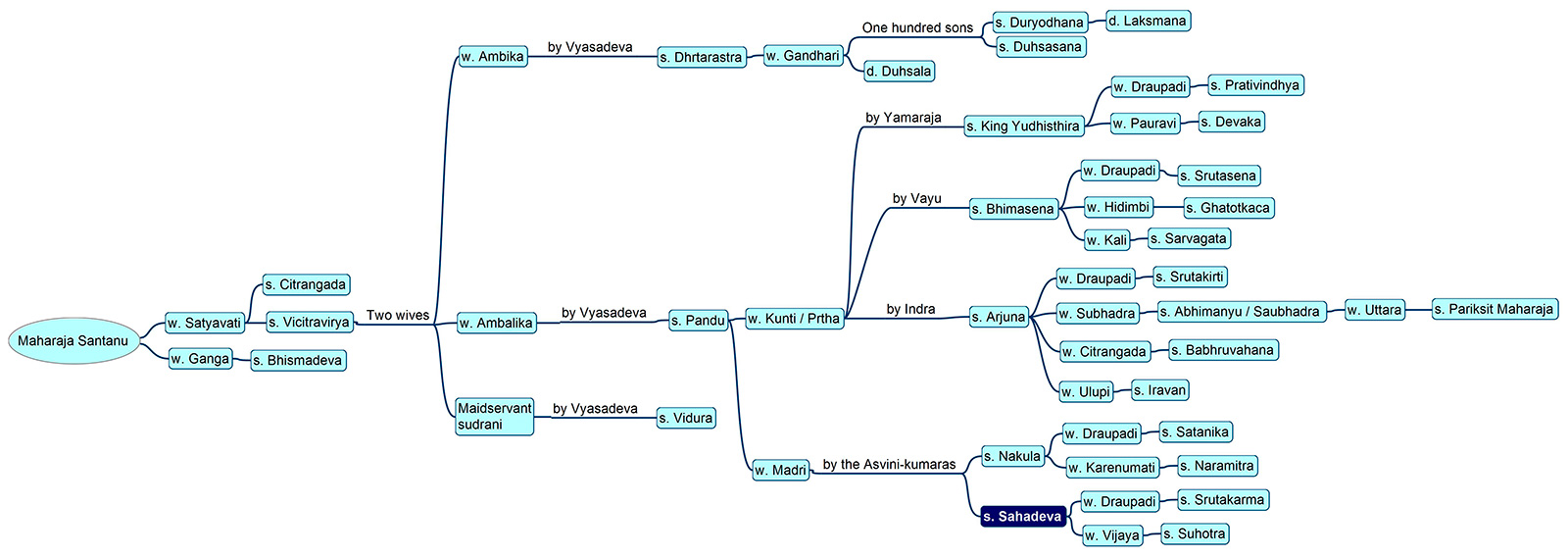
Family Tree Legend: h = husband, w = wife, s = son, d = daughter
INTRODUCTION TEXT TO BE WRITTEN
Srila Prabhupada's books, lectures, conversations and letters reveal the qualities of this essential subject as seen in the Vaniquotes Sahadeva category. An introduction to Sahadeva from Srila Prabhupada's teachings is given below in the following 8 quotes.
Quotes from Srila Prabhupada's teachings
Sahadeva - explore more within this category.
Vanipedia has now over 215 introductory articles compiled from Srila Prabhupada's teachings under the series titled Glorious Personalities. All these articles can be seen in the Table of Content on the right side of this article and also here in this Umbrella Category. Browse through them to relish the breadth and depth of Srila Prabhupada's teachings - There is an attractive personality for everyone.
